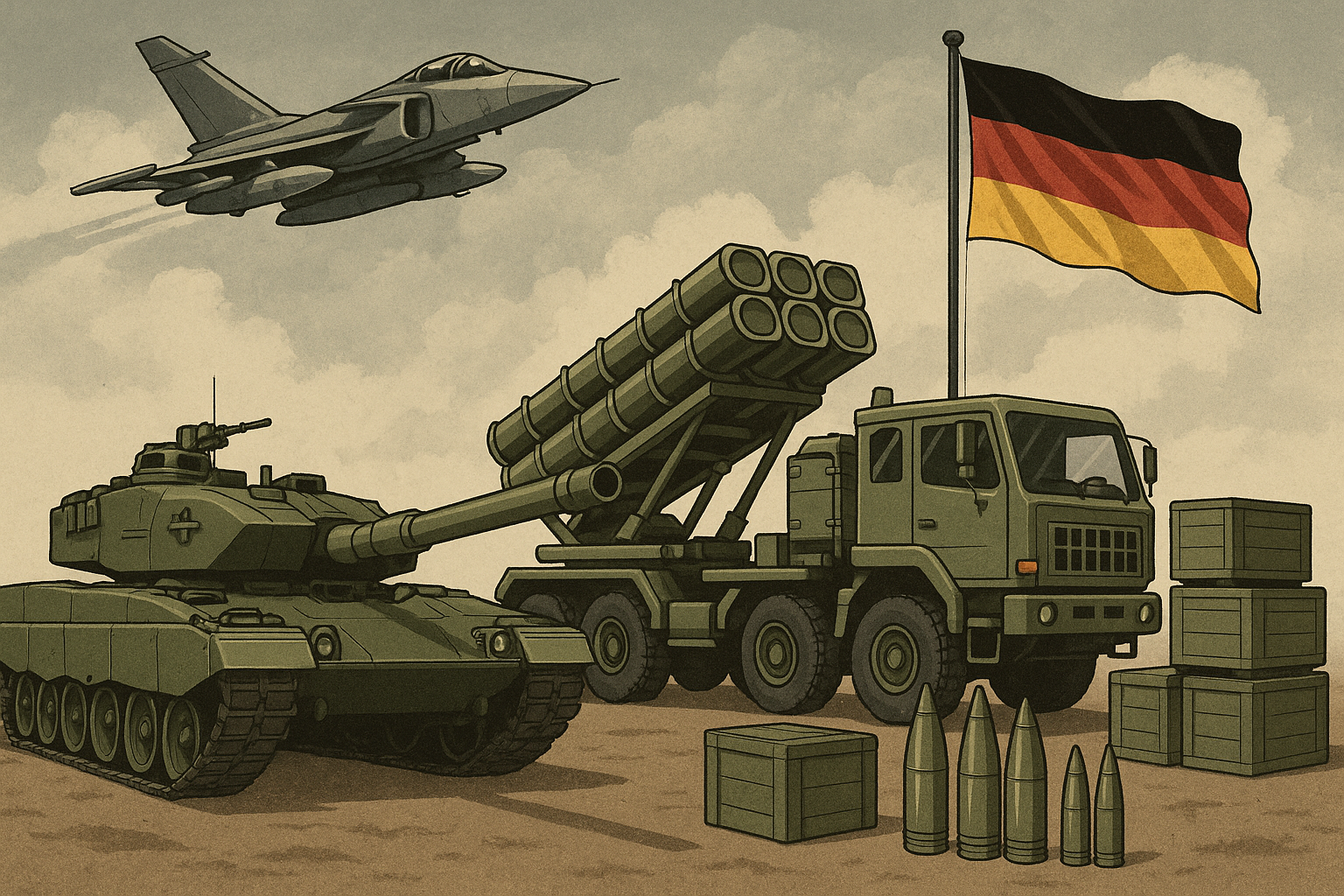Germany expands defence industrial strategy with major procurement push

Germany is preparing a new wave of defence spending as lawmakers move toward approving €2.9 billion for 11 procurement contracts that support a wide stretch of domestic military manufacturing.
The planned approvals are expected at a closed-door meeting next week, marking another step in Germany’s attempt to rebuild its armed forces after Russia’s invasion of Ukraine in 2022.
The investment package spans rifles, drones, missiles, vehicles, and artificial intelligence systems, showing how defence production has widened across both legacy contractors and new technology companies.
The orders are outlined in procurement documents seen by Bloomberg.
Domestic production focus grows
The procurement package places a clear emphasis on German-made equipment, reflecting the government’s plan to strengthen supply chains at home.
The defence ministry, reports Bloomberg, has asked parliament to approve large orders that include as many as 250,000 G95 assault rifles from Heckler & Koch for €765 million.
The move fits Germany’s wider effort to increase the scale of domestic weapons manufacturing as the Bundeswehr expands.
Alongside the rifles, Rheinmetall Soldier Electronics is set to supply as many as 250,000 laser-light targeting modules worth €490 million.
The order would equip the rifles with advanced targeting technology, deepening Rheinmetall’s role in the modernisation drive.
Military headsets worth €346 million will be provided by a consortium of Rheinmetall Electronics, 3M Deutschland, and CeoTronics AG, according to the documents.
Expanding the role of drones and vehicles
Tactical drones continue to feature strongly in Germany’s defence plans.
The ministry is seeking approval to buy as many as 750 reconnaissance drones from Quantum Systems, a Munich-based startup, for €85 million.
These drones form part of a broader effort to boost surveillance and operational readiness, especially across NATO territories.
Vehicles also remain central to the procurement package. Mercedes-Benz is set to receive an order worth €379 million for 1,744 military off-road vehicles.
The deal highlights how traditional automotive manufacturers are increasingly integrated into defence infrastructure as Germany updates its mobility fleet for deployments and training.
The document list also shows the involvement of firms such as Helsing and Daimler-Benz AG, further demonstrating how the defence sector now spans both established industrial groups and newer entrants in the security technology space.
AI and surveillance upgrades for nato regions
A notable shift in strategy comes from a proposal to fund two competing consortia with a €68 million contract to develop an artificial intelligence platform aimed at monitoring NATO’s eastern flank.
This includes Lithuania, where Germany is building a permanent battle tank brigade to support deterrence efforts.
The dual-track approach breaks with Germany’s traditional procurement pattern, which usually selects a single development group at an early stage.
The first consortium consists of Airbus Defence & Space and Quantum Systems.
The second is made up of Helsing and Arx Robotics. According to the procurement documents, a larger contract for the platform is planned at a later stage as the project evolves.
International suppliers in a domestic-heavy package
Although the procurement list is dominated by German companies, foreign participation is not entirely absent.
Norwegian defence manufacturer Kongsberg Defence & Aerospace AS is set to supply missiles worth €445 million for Germany’s fleet of F-35 fighter jets.
This follows a previous missile contract signed in June and reinforces Germany’s acquisition strategy for the F-35 programme.
The wider plan to modernise the Bundeswehr is tied to long-term commitments made after 2022, when Chancellor Friedrich Merz and Defence Minister Boris Pistorius pledged to transform the armed forces into Europe’s largest conventional military.
The strategy relies heavily on debt markets to fund drones, satellites and AI-powered systems that enhance national and NATO readiness.
The post Germany expands defence industrial strategy with major procurement push appeared first on Invezz



